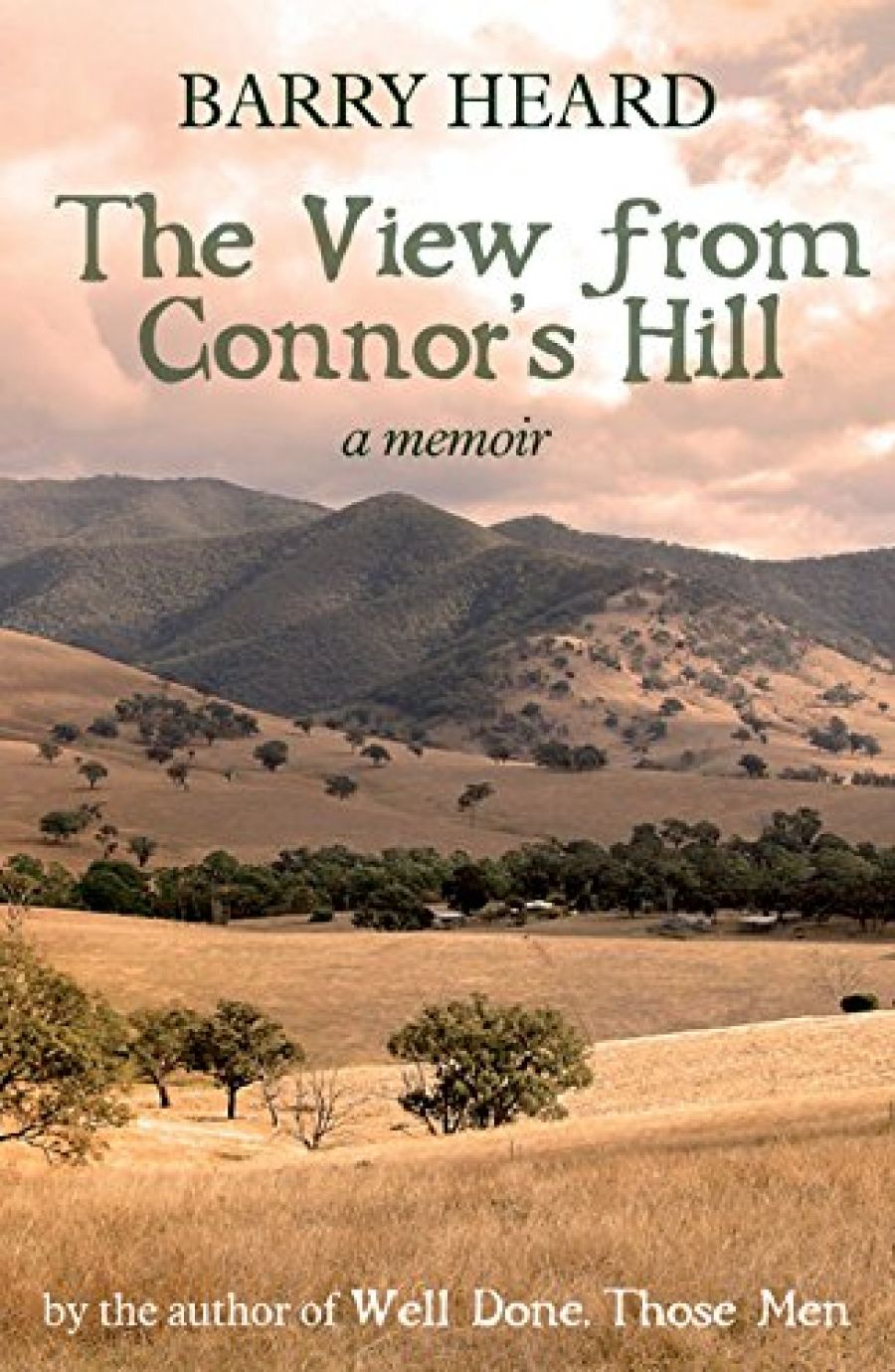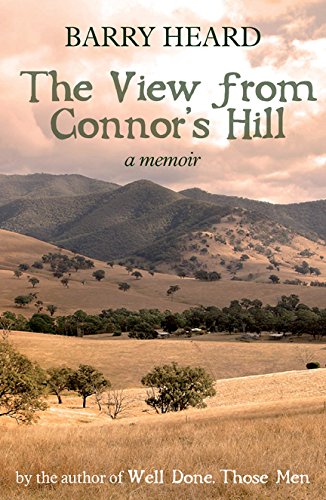
- Free Article: No
- Contents Category: Memoir
- Custom Article Title: In a warm, soft place
- Review Article: Yes
- Article Title: In a warm, soft place
- Online Only: No
- Custom Highlight Text:
'I want to be buried on top of Connor’s Hill, the mountain at the head of the Tambo Valley in East Gippsland.’ These were the words that came into Barry Heard’s mind as he faced death in the jungle in Vietnam in August 1967, an episode recounted in his first memoir, Well Done, Those Men (2005). Later in that book, Heard recalled another near-death experience, when his mind turned again to Connor’s Hill: ‘I was in a warm, soft place that was bright, peaceful and beautiful, like the top of Connor’s Hill. It was where I wanted to be.
- Book 1 Title: The View from Connor's Hill
- Book 1 Subtitle: A Memoir
- Book 1 Biblio: Scribe, $29.95 pb, 272 pp
- Book 1 Cover Small (400 x 600):

- Book 1 Cover (800 x 1200):

Writing, for Heard, has been a healing process that has brought him back from hell, and it appears, from this second book, that his recovery is well underway. The intense, detailed narrative of Well Done, Those Men, in which Heard purges himself of the trauma of Vietnam and the pain and isolation that followed, has given way to a more relaxed and simple style that engages directly with the reader and suggests that the older man has reconnected with his younger larrikin self.
In The View from Connor’s Hill, Heard has the distinctive voice of an Australian storyteller, a yarn spinner who can make you laugh on one page and cry on the next. In this book he touches on his very early years in Collingwood, Melbourne, as well as recalling his formative years in the bush in eastern Gippsland. Even though my experience of farming and country life was gained principally in England, Heard’s life as a rouseabout and drover evokes many of my own rural memories. Whatever the background of the reader, these tales of growing up in Victoria in the 1950s and early 1960s are bound to resonate with many childhood emotions and teenage experiences.
The View from Connor’s Hill opens with the chapter ‘Rover’, which was originally written as a short story. It is the strongest and most memorable of his yarns, one that recalls his faithful and remarkable farm dog. Heard was encouraged to write the story by an old man who had vivid and fond memories of Rover, the dog who travelled with Heard on the bonnet of his tractor, the bar of his pushbike, the fuel tank of his Bantam motorbike or the saddle of his rogue horse Swanee (who also has his own chapter). In this story Rover has been immortalised and it will stand as a tribute to all Australian kelpies and farm dogs.
Heard then backtracks to his early years in Collingwood and Ringwood, but this section does not have the same narrative conviction. No doubt these are sketchy memories that have been filled in by talking to family and doing other research, and they do not hold the same emotional impact. Heard admits that he has no memory of his older brother, even after writing about him as if he does. There are some vague descriptions in the earlier part of the book that could have been edited, such as this: ‘Possibly for the first time during that long walk, I looked around. I saw the hills, the beautiful trees, the birds, and the diversity of scenery that abounds in that picturesque area.’
Heard, on the whole, speaks in a colourful Australian vernacular, with a sense of rhythm and timing that complements his humour and simplicity. It is a distinctive voice that, by the time I closed the book, made me look on the author as an old friend, one who has seen tough times and good times and knows how to share them. This is part of the appeal of Heard’s writing: his ability to tell a story with such intimacy, after decades of being unable to communicate even to those close to him. There is an allusion to this in the closing pages of his book, which are a reflection on reading and writing:
Writing is more than my hobby; it provides me with an unseen confidant and friend. It enables me to be alone, and to ponder my life and its difficulties; then, most importantly, it gives me a sense of perspective. Now I write every day – always a diary entry, and sometimes a recollection. It might be just one sentence, but I know it will trigger a particular memory if it’s needed in the future … when I hunger for the pen or keyboard.
The real gems in Heard’s memoir are his stories of the bush and his years as a farmhand and drover that lead up to his conscription into national service. These stories have value, not just as a personal, funny and moving personal history, but as a documentation of the Australian landscape, farming methods, culture and character. The thunderbox has its own graphic portrait, blowflies and all. The camp oven and the night cart have a fair go. What stands out in this exhilarating narrative is the recklessness and toughness of this young man, and the physical damage he was able to sustain. Young and invincible, he was about to discover that the mind is more fragile than the body. But it can recover. Here is the proof.


Comments powered by CComment